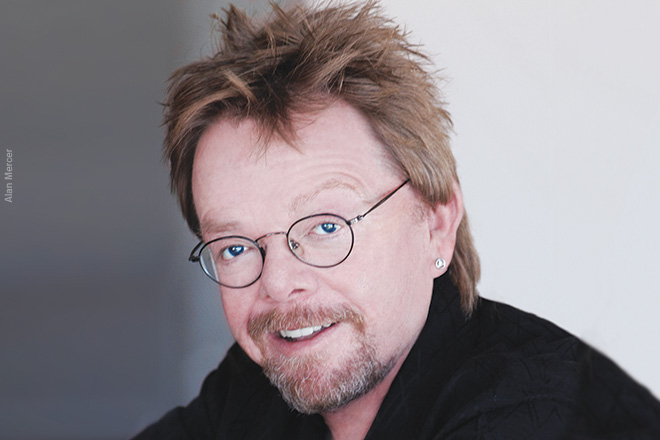 PAUL WILLIAMS
PAUL WILLIAMS
The once-ubiquitous songwriter returns to stage, screen—and Capitol Hill
Paul Williams became wildly successful for penning romantic 1970s hits including “We’ve Only Just Begun,” “An Old Fashioned Love Song” and “Evergreen.” But behind the scenes Paul Williams battled demons of addiction. “I did 48 Tonight shows,” he says. “I remember six.” Goodbye, Johnny Carson; hello, Betty Ford. Today, more than 20 years clean and sober, Williams, 72, is back—writing a stage version of Pan’s Labyrinth, a Happy Days musical and a book on recovery. He’s also the subject of the acclaimed documentary Paul Williams Still Alive. And, oh yes, for the past four years he’s been the president of ASCAP.
You were the original king of media.
If you set up a camera and a couch, Paul Williams would be there. My addiction to the camera was outrun by my addiction to alcohol and cocaine, but it still felt like an addiction. When I got sober, I had to separate myself from the public side of my career, just like an alcoholic who shouldn’t have even a sip of beer. The idea of filming a documentary about me was something I ran from. There’s nothing more pathetic than an old man sticking his hands out and saying, “Please, sir, may I have another cup of fame?”
But you focused your fame.
I realized that when you point a camera at me, I have an opportunity to talk about the things I’m passionate about, and I am passionate about music creators’ rights. I had just enough fame left over to be able to walk into a senator’s office, put out my hand, and get, “Hey, you’re Little Enos from Smokey and the Bandit! Glad to have you here.” I get more mileage out of Smokey and the Bandit than I do out of “Evergreen.” Sorry, Barbra. If the little bit of celebrity I have left can do some good for the lady in the headphones, the one who’s writing a song on an electric keyboard while trying not to wake the baby in the next room, because she needs to put food on the table for that baby, then I should use it.
Is that how you see yourself, too?
As I always joke, I am the perfect metaphor for the small businessman. But yes, thank goodness for a nice pair of headphones. Thank goodness for a Yamaha electric keyboard that you can plug your headphones into, and the rest of the world doesn’t have to hear it until you’re ready to share it. The QuickVoice app on my iPhone is my No. 1 tool. I compose in my head, find the chords on the keyboard, then take a quick trip to [music director] Chris Caswell’s studio and make it sound like it was written by a grown-up. All I need is something to get the words down, and the chords.”
In that order?
They asked Sammy Cahn which came first, music or lyrics. He said, “The phone call!” But when I hear music, I usually hear words in it. It’s like somebody at the United Nations who sits and translates Swedish to German or Spanish to Latvian. I translate emotion into words and music.
Has your writing changed in sobriety?
Yes. I don’t edit myself nearly as much as I used to. I let it roll. I allow myself to be bad. You can always make it better. The unconscious is powerful, and we constrict the source when we become anxious and overworked. If I sit and try to write something brilliant, I tense up. I’m clearly standing on the hose. So I get off the hose. I trust my unconscious.
–Ethlie Ann Vare



comment closed